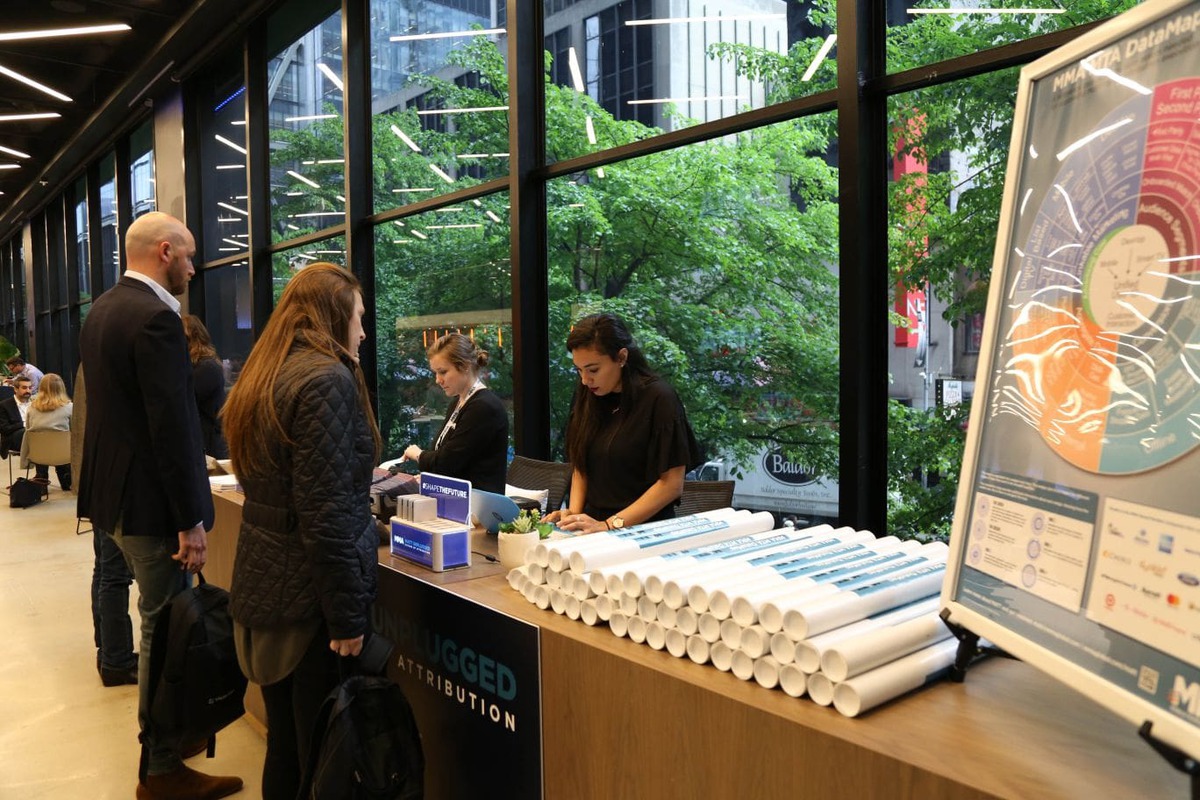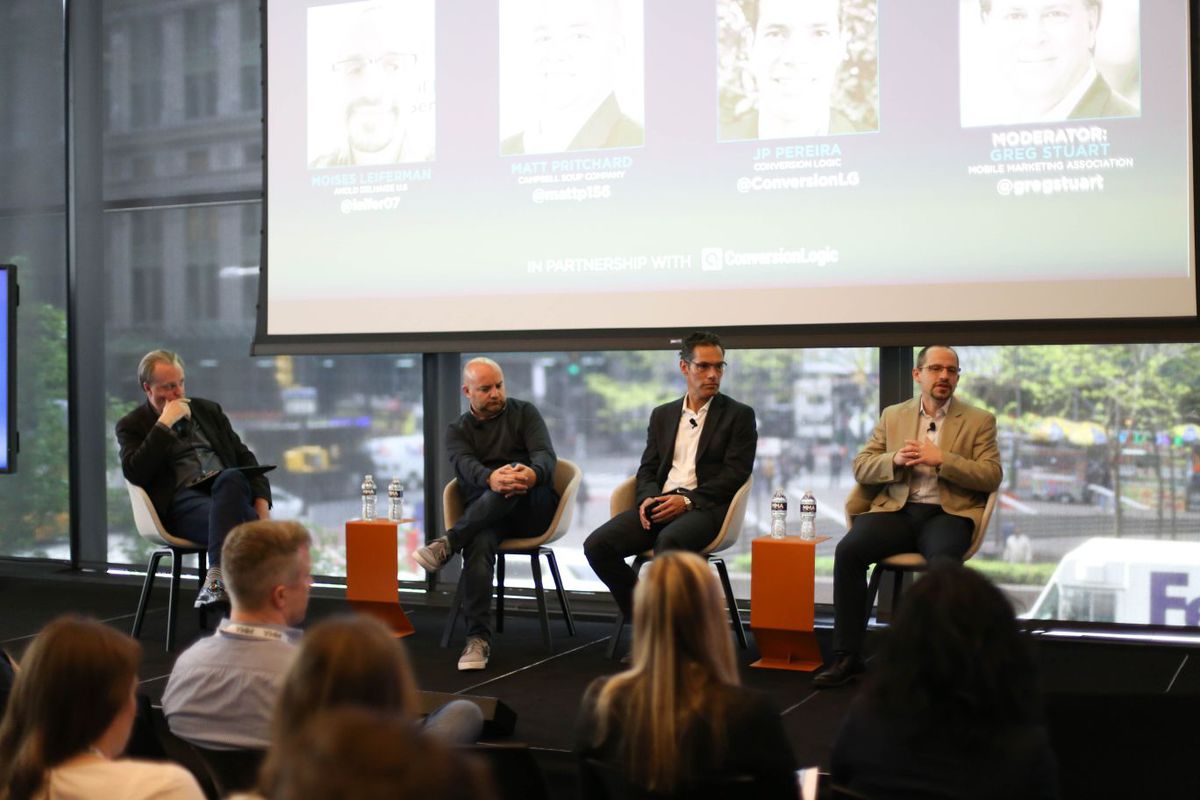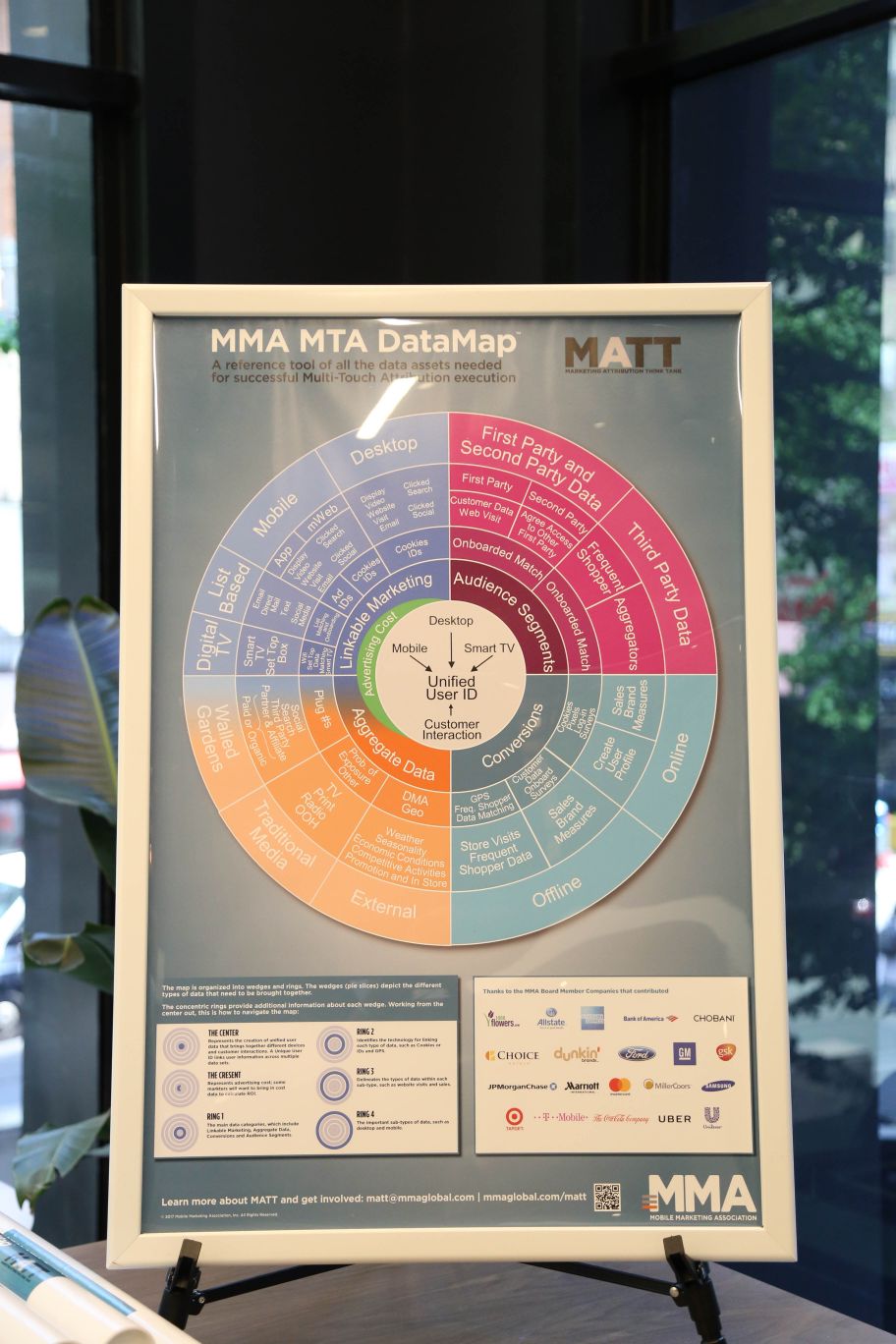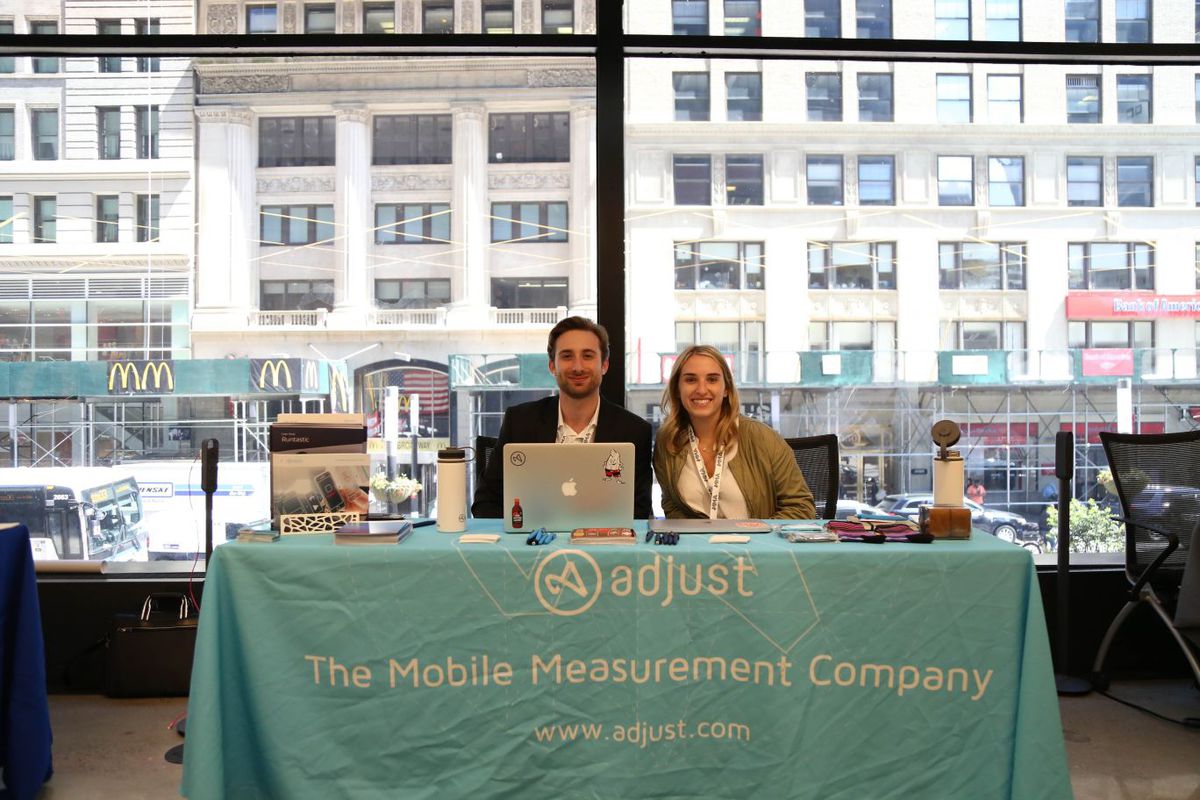The MMA’s first conference devoted entirely to Multi-Touch Attribution provided a road map to deploying MTA. The standing-room only crowd was a clear reflection of the fact that MTA is becoming an industry-wide priority. As MMA CEO Greg Stuart said during his opening remarks, “The work is so much bigger than just mobile.”
Brands including Microsoft, Casper, E*Trade and Unilever took the stage to detail their approaches, and MATT Unplugged was also where the MMA unveiled the latest outputs from its Marketing Attribution Think Tank (MATT), which include a paper on workarounds for data-sharing restrictions and the first comprehensive grid of data-sharing policies of major online publishers. “We want to make MTA easier to implement. We want to create a knowledge sharing environment,” said the MMA’s MTA expert, Joel Rubinson, of the MATT initiatives.
If the road to MTA isn’t smooth, it is surprisingly consistent, as both the presenters and the audience seem to be having a similar journey, figuring this out together as they go. Below are eight tips from the event to get your MTA strategy moving:
- MTA ain’t easy (but it is doable). While many marketers see employing MTA as a no-brainer, none of them would say it’s easy. Be prepared to for a long timeline for initial implementation, with plenty of obstacles along the way – from acquiring data to selling through to stakeholders. “There’s some tenacity required,” said Microsoft’s Michele Garner in describing the company’s MTA journey.
- Start somewhere, and start small. Nonetheless, presenters urged the audience to get going on MTA. Said Casper’s Hairong Crigler: “Don’t wait. Start from somewhere, iterate and continue testing and continue improving.” Unilever’s Melissa Orchard also advocated for a scaled approach. The company, which handles its MTA internally, started testing MTA with a few brands and then decided to scale more broadly.
- Try to make MMM and MTA play well together. There’s a clear trend toward employing both Marketing Mix Modeling (MMM) and MTA simultaneously, with MMM primarily being used for media strategy and MTA taking measurement to a more granular level. A side benefit is that using the two approaches allows marketers to get a better handle on the truth, instead of relying on a single source. If they are showing wildly different results, it’s a clear sign that models need to be tweaked.
- Get your organization set up for MTA. While data is the key foundational element of MTA, it won’t work unless a marketer’s organizational structure is aligned around it as well. E*Trade’s Leah Beirne boiled it down to three core questions:
- Do we have the right platforms?
- Do we have the right people?
- Do we have the right process?
- Make your insights actionable. MTA isn’t just about assessing data, but being able to use it toward increasing ROI. As Microsoft’s Garner noted: “You may have insights … but until you can get to the agency, the tools don’t form into something that’s usable.”
- Oh … and get the agency involved early, and often. Even if the agency’s core role is to optimize campaigns off of MTA findings, it has to be part of the initiative, early on. “This stuff generally, at best, becomes academic if there isn’t a way to incorporate it in the workflow of the agency and the client,” said attendee Lee Beale of Crossmedia.
- Engage your stakeholders. Selling MTA into the organization isn’t necessarily easy either, as those who own it will have to navigate skepticism, cost and implementation concerns with a variety of constituencies. Tailor your pitch to your audience – talking about MTA with the CFO is an entirely different exercise than it is with the media team.
- Don't wait for perfect. MTA will never be perfect, so marketers need to accept that, for all of the challenges, it is still worth it, with some seeing as much as a 30% ROI upside when they use MTA. As Rubinson said: “Anything less than having complete data is really a compromise, and the reality is you’re not going to get it.” Don’t let the great be the enemy of the good.



Below are links to assets that can also help marketers along the road to MTA.
Members:
For a complete look at MATT initiatives, click here.


































